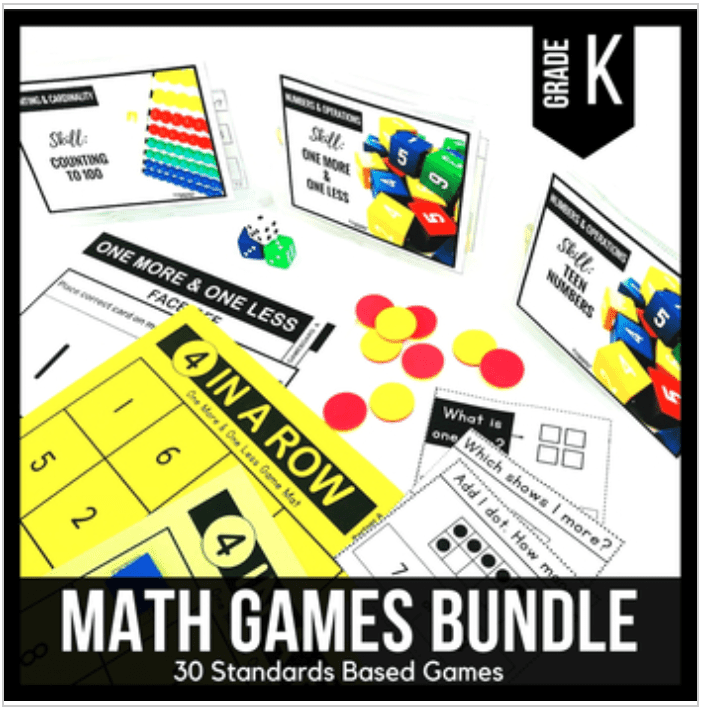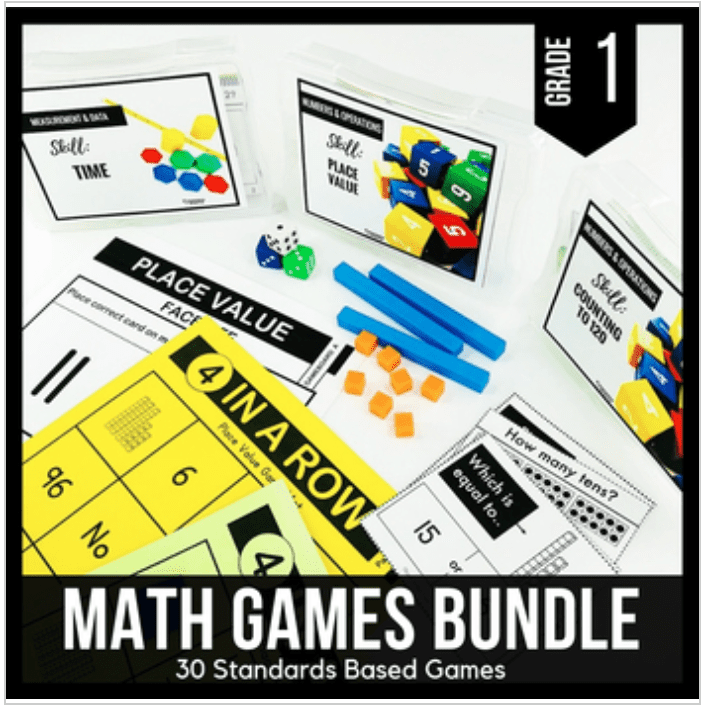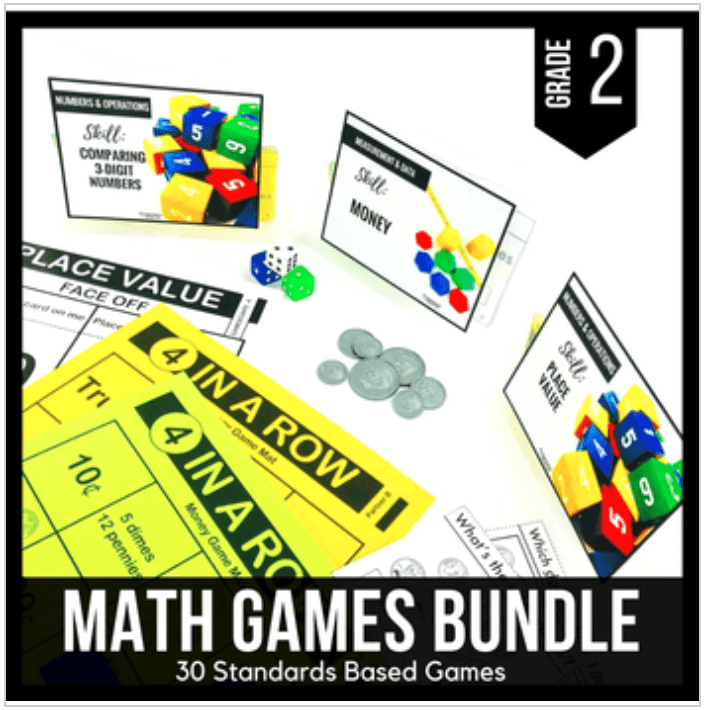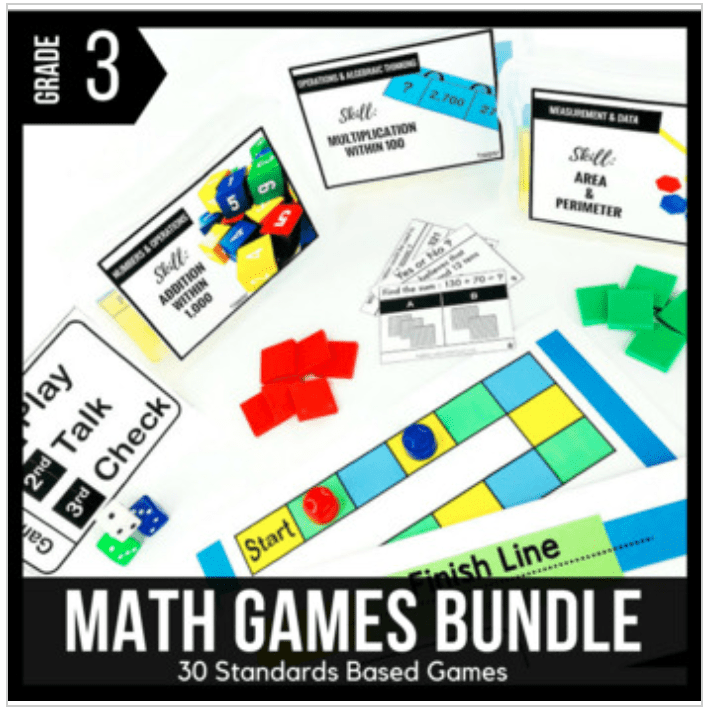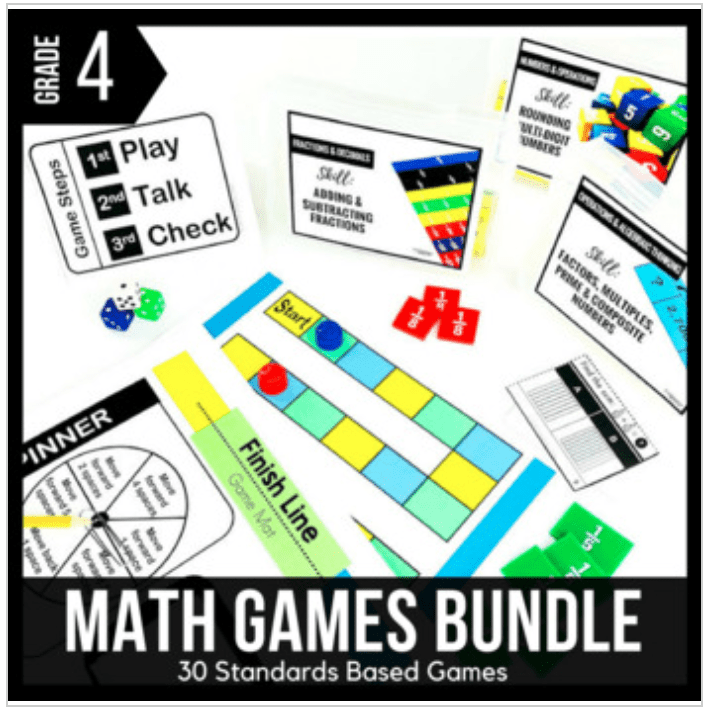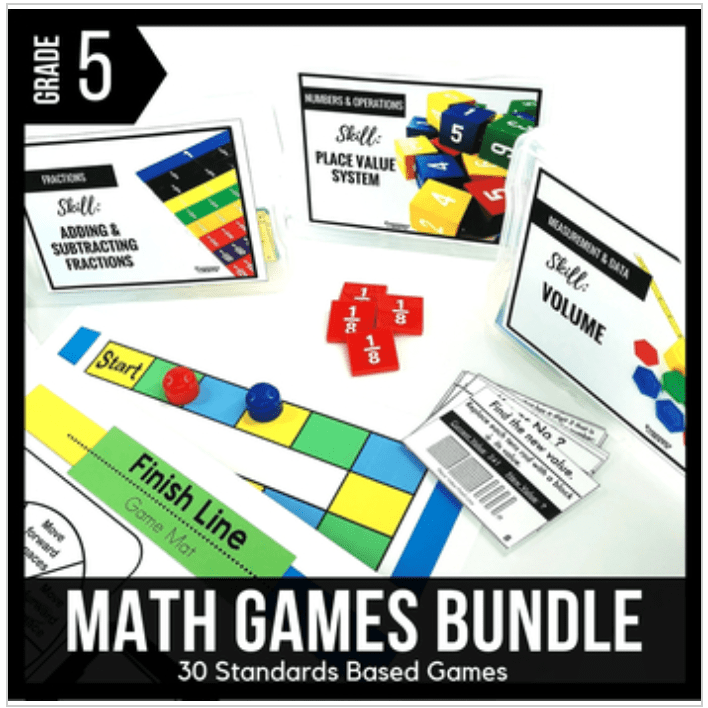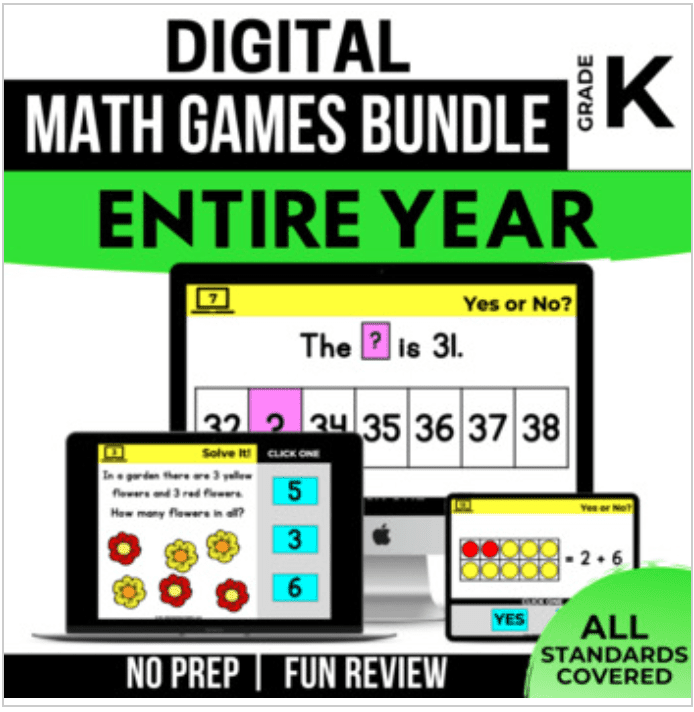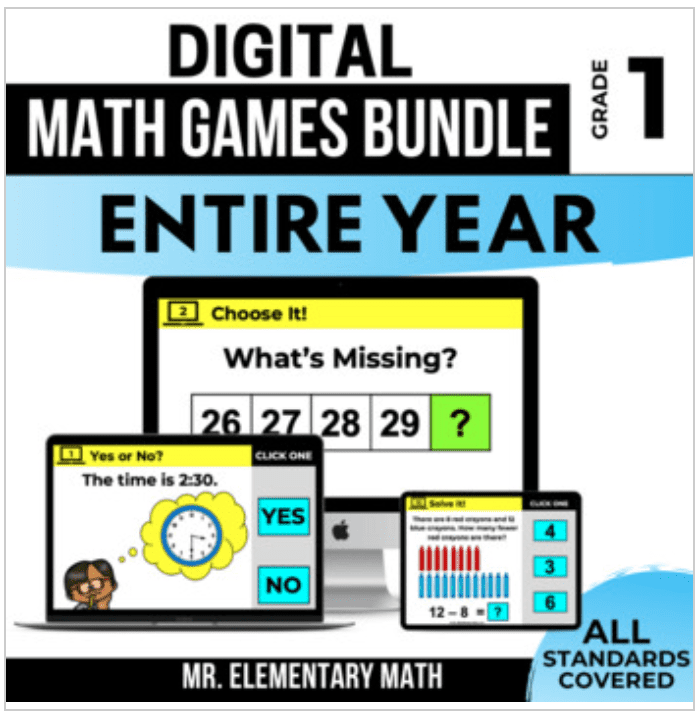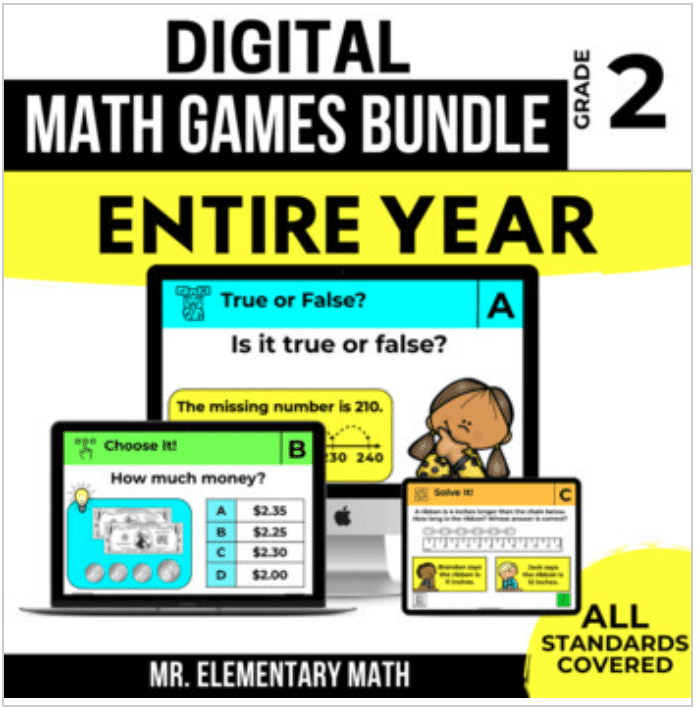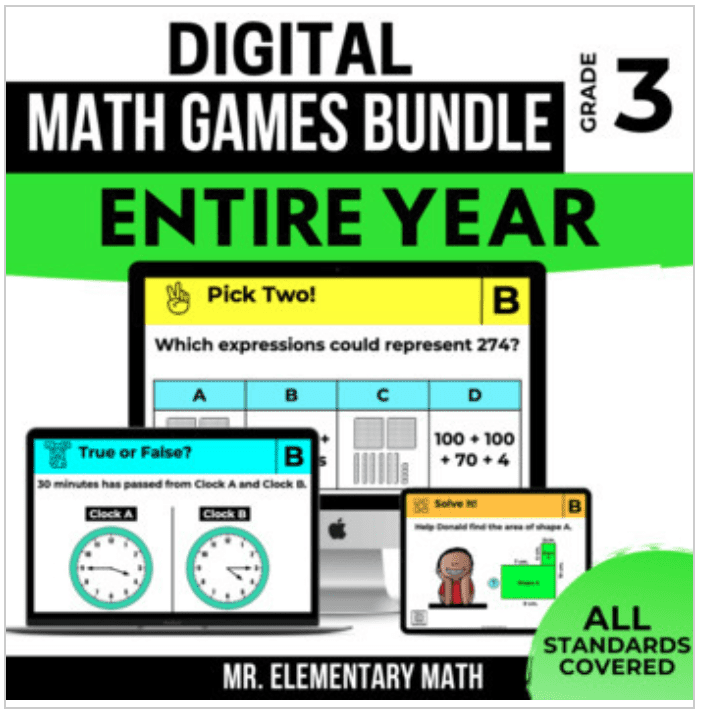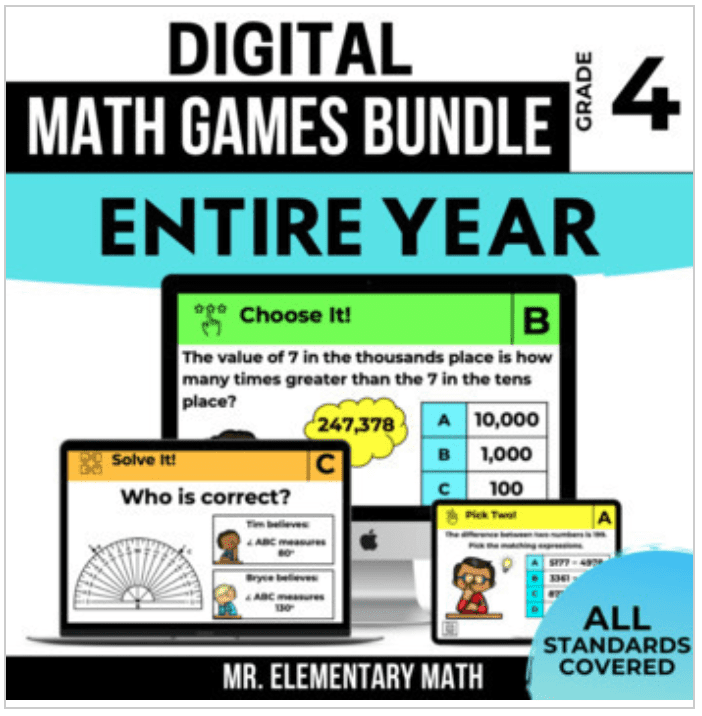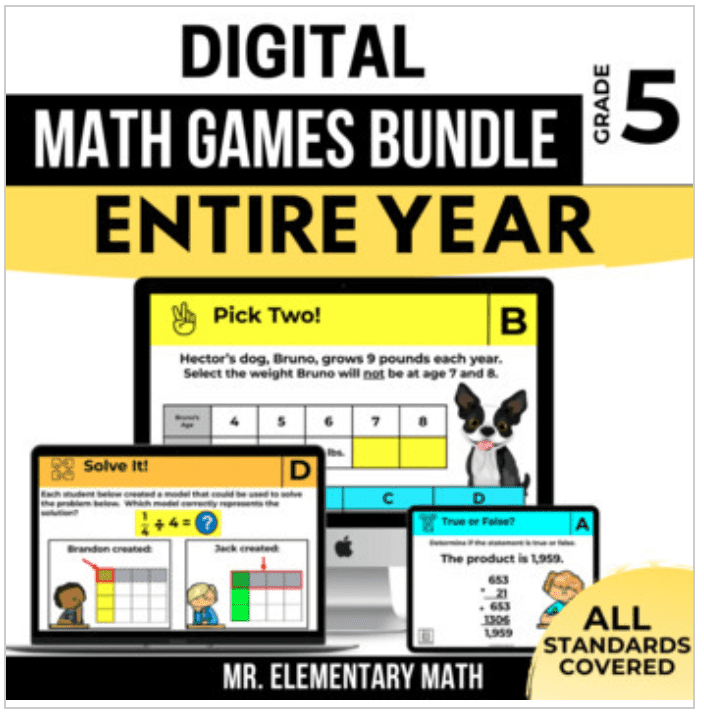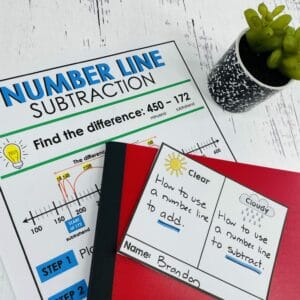
Are you searching for a way to make math exciting to review? Or are you trying to explain to others why math games are not just play with no purpose? Look no further because there are numerous benefits for adding math games to your teaching toolkit.

Math games are an effective instructional strategy for reviewing math skills.
How so? Let’s get to it. Math games:
Reason #1 – Promote Math Talk
When kids play games with each other, it gives them something to talk about. This can happen during gameplay or after the game is complete. The key is providing students with a structure that fosters productive discussions and academic vocabulary. This can include sentence frames, Math Talk cards or guided questions that are specific to the game.

Reason #2 – Create Time for Observation
While your kids are engrossed with playing math games, you are free to observe and assess in an informal setting. You can watch the actions they take and the decisions they make. Record what you notice by taking notes. Your kids won’t notice what you are doing and the pressure of “testing” will not be present.
Reason #3 – Provide an Alternative Way to Review
Doing the same thing over and over again can get boring, but games offer different outcomes. Unlike drills, games allow opportunities for repeated practice in a non-threatening manner. It’s more informal because it’s perceived as a fun activity plus it gives students another chance to review important math skills.
Looking for engaging math games? Click on your grade level below:
Reason #4 – Encourage Cooperative Learning
Depending on the type of game, students can work in groups or pairs. Working with peers helps improve interpersonal skills (communicating, being a team player, problem-solving, etc.) The time spent with face to face interactions provides the practice needed to develop these skills.
Now let’s keep it real. As educators, I am sure that you would agree that some of our kids don’t always come to the table with these skills. That is why it is very important that we repeatedly model for students how these skills look. Playing games is a great way to practice them.

Reason #5 – Support Different Learning Styles
Let’s talk about differentiation. Our kids learn in different ways, just like us! So, why not use math activities that reach multiple students. This is where games come in. Games are great for:
- Visual Learners – when there are models and picture representations
- Kinesthetic Learners – when games include hands-on experiences and movement
- Auditory Learners – when kids openly communicate and talk to each other
- Read/Write Learners – when students use a recording sheet to find their solution

Reason #6 -Increase Student Engagement and Motivation
Plain and simple, kids (and adults!) enjoy playing games. So let’s use this love of play to foster a positive attitude about math. I have seen student faces light up when introducing new math games for center work. When given a choice, will students freely choose to participate in whole-group gameplay or complete a worksheet? I think you know the answer.
Reason #7 – Develop Strategic Thinking
You know how you feel when you are searching for that perfect Jenga piece to pull from the tower without making it all fall down (“Should I pull from the top or the bottom?” “This one looks a little loose. Should I tap it?”) Your kids are making similar decisions when they play math games. They may not know it, but they are thinking strategy. (“What is the quickest way to solve this problem so that I can advance?”)

Reason #8 – Build Home-School Connections
Don’t have a clue what to do for Back to School or Family Nights? Play games! Instead of a PowerPoint, show parents what types of activities are happening in your classroom. This way they can get a real picture of what their kids will be doing and have a good time doing it!
Another way to bridge the home-to-school gap is to provide choice with homework. Don’t be afraid to mix it up! Since the purpose of homework is to practice previously taught skills, send home a familiar review game. Just make sure that they are simple games that can also be played independently.
Looking for engaging math games, that meet the criteria above? Click on your grade level below:
Math games have a rightful place in your classroom. They are a proven way to get your kids excited about math review. Add them as a normal part of your instruction and start experiencing the benefits immediately. And if anyone says “They are just playing”, share some of the benefits you learned about here.
72
